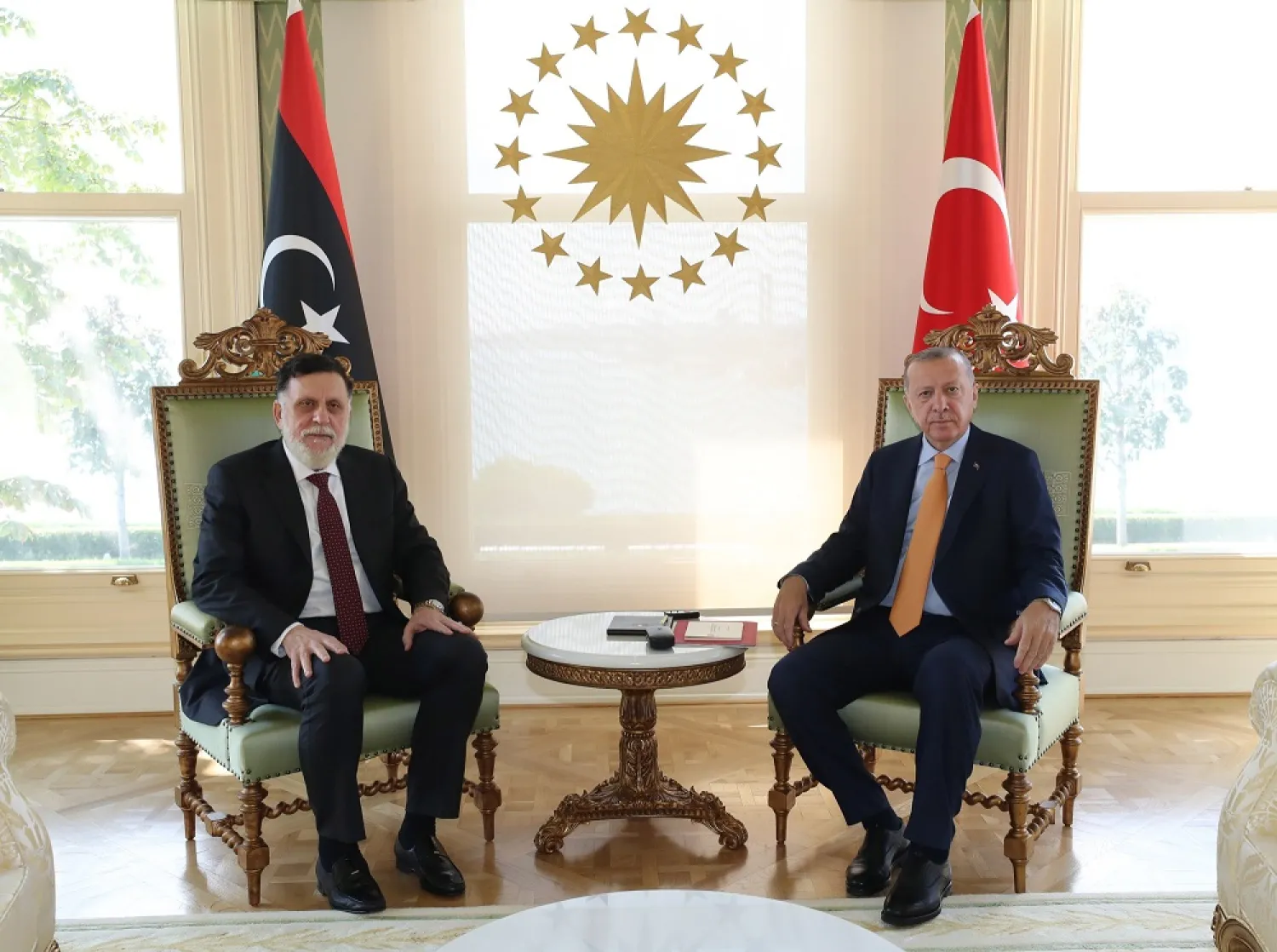Turkey continues to send military cargo planes loaded with weapons to Libya, less than 24 hours after Turkish President Recep Tayyip Erdogan met the head of the Libya’s Government of National Accord (GNA), Fayez al-Sarraj, in Istanbul.
Itamilradar website, which specializes in monitoring military aircraft, reported that Turkish flights to Libya are ongoing, noting that on Monday morning, a Turkish Air Force Airbus A.400M “Atlas” landed in Misrata from Istanbul. It returned to Turkey after unloading its cargo.
Meanwhile, the Syrian Observatory for Human Rights reported that a new batch of about 450 Turkish-backed mercenaries have returned from Libya to Syria, after completing their contracts. Ankara had dispatched them to the North African country to fight alongside the GNA against Libyan National Army (LNA), commanded by Khalifa Haftar.
The mercenaries were transported from Tripoli’s Mitiga airport to Istanbul, and they will be sent to areas under the control of Turkish-backed factions in Syria’s Aleppo countryside.
Turkey has sent 17,420 Syrian mercenaries to Libya, including 350 under the age of 18. Some 2,500 are Tunisian members of terrorist groups, including ISIS and al-Qaeda. Some 6,700 of the mercenaries have since returned to Syria after their contracts ended and they received their financial dues. Turkey, however, is still bringing in more mercenaries to its training camps before sending them to Libya.
During his talks with Sarraj, Erdogan stressed that Turkey’s priority is to ensure stability in Libya by protecting its political unity and territorial integrity.
In a statement from the Turkish presidency said Erdogan called on the international community to assume a "principled stance" in this regard.
It described the Istanbul meeting as fruitful, saying the two parties agreement to develop bilateral relations in order to achieve peace, security and prosperity for the Libyan people.
The Turkish president renewed his support to Libya, stressing that achieving peace and calm in Libya will benefit the whole region, especially neighboring countries and Europe.
The meeting also addressed the steps to protect the rights of Turkey and Libya in the Eastern Mediterranean and terms to strengthen the cooperation under the deal signed between the two countries, according to the statement.
For his part, Sarraj expressed his appreciation for Turkey's support to the GNA, and efforts to ensure the success of the political settlement that will allow the Libyans to return to the constitutional course and hold legislative and presidential elections.









